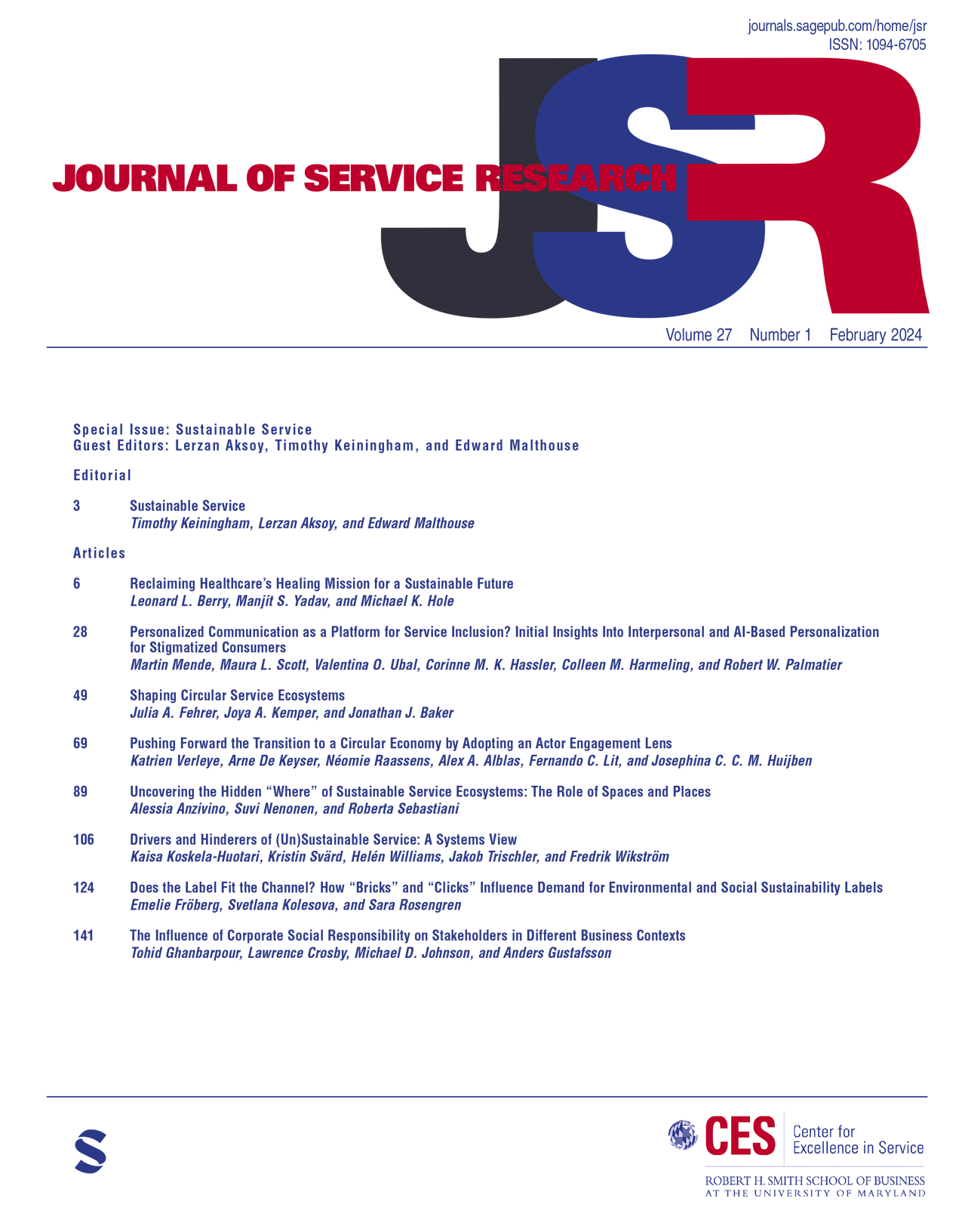人道主义危机:服务逃离的(不)确定性及其对一线行动者的影响
IF 8.6
2区 管理学
Q1 BUSINESS
引用次数: 1
摘要
先前的工作讨论了服务逃逸作为一个稳定的环境,但回避了研究危机情况下的服务逃逸以及它们如何影响一线员工(le)。本文将服务逃避作为静态和计划之外的东西进行研究,并解释了服务逃避中经常出现的不确定性。具体来说,我们将危机情况下的服务逃逸概念化,考虑到景观的稳定性和过程的可预测性。在这样做的过程中,我们提供了一个更细致入微的了解FLE经验和工作满意度在危机服务逃亡,如人道主义背景。我们对这些很少被调查但非常重要的服务提供环境的研究确定了员工需要如何协调动态上下文方面和可能影响他们工作满意度的变量。通过对人道主义援助背景的两项研究,包括一项与联合国的研究,我们表明,服务逃离过程和/或景观往往是动态的。我们进一步表明,组织价值的一致性、愉悦性和便利性通过降低他们感知的不确定性水平,对危机服务逃逸人员的工作满意度产生积极影响。本文章由计算机程序翻译,如有差异,请以英文原文为准。
Humanitarian Crises: The (Un)Certainty of Servicescapes and Their Impact on Frontline Actors
Prior works discuss servicescapes as a stable environment but abstain from examining servicescapes in crisis situations and how they impact frontline employees (FLEs). This paper investigates servicescapes as something other than static and planned, and it accounts for the uncertainty often present in servicescapes. Specifically, we conceptualize servicescapes in crisis situations on a continuum that takes into account the landscape’s (in)stability and the processes’ (un)predictability. In so doing, we provide a more nuanced understanding of FLE experience and job satisfaction in crisis servicescapes, such as humanitarian contexts. Our research on these rarely surveyed but highly important service-providing circumstances identifies how FLEs need to reconcile the dynamic contextual facets and the variables likely to influence their job satisfaction. Across two studies of humanitarian aid contexts, including one with the United Nations, we show that servicescape processes and/or landscapes are often dynamic. We further show that organizational value’s congruence, pleasantness, and convenience have a positive impact on FLE job satisfaction in crisis servicescapes by decreasing their perceived level of uncertainty.
求助全文
通过发布文献求助,成功后即可免费获取论文全文。
去求助
来源期刊

Journal of Service Research
BUSINESS-
CiteScore
20.30
自引率
6.50%
发文量
28
期刊介绍:
The Journal of Service Research (JSR) is recognized as the foremost service research journal globally. It is an indispensable resource for staying updated on the latest advancements in service research. With its accessible and applicable approach, JSR equips readers with the essential knowledge and strategies needed to navigate an increasingly service-oriented economy. Brimming with contributions from esteemed service professionals and scholars, JSR presents a wealth of articles that offer invaluable insights from academia and industry alike.
 求助内容:
求助内容: 应助结果提醒方式:
应助结果提醒方式:


